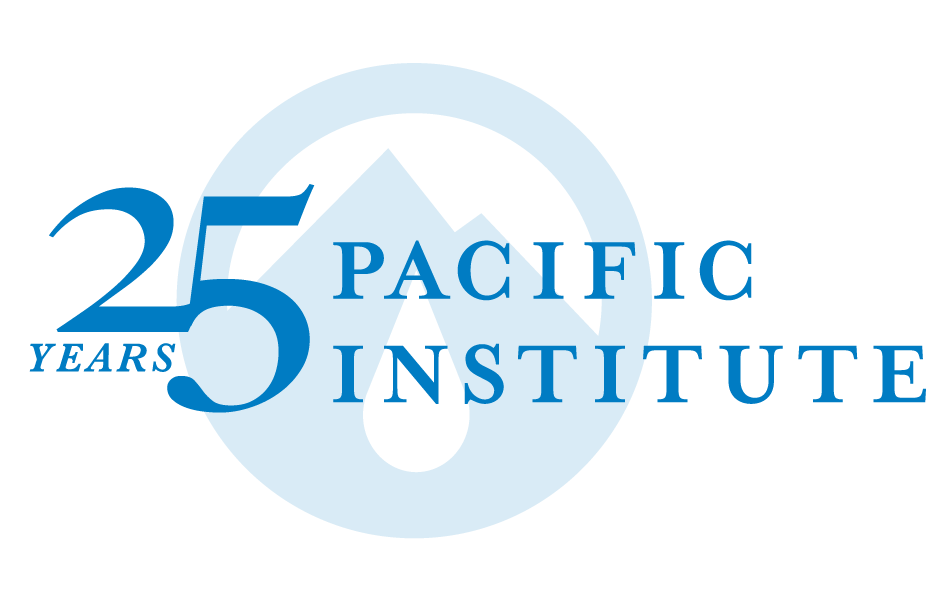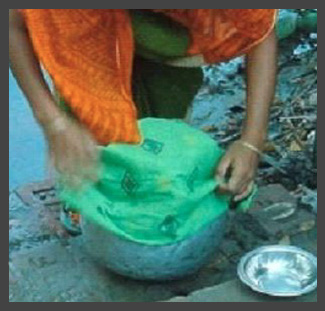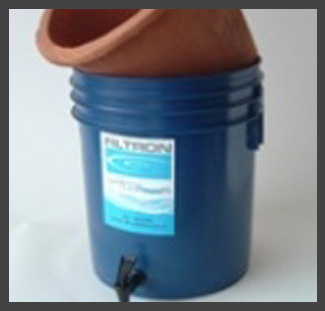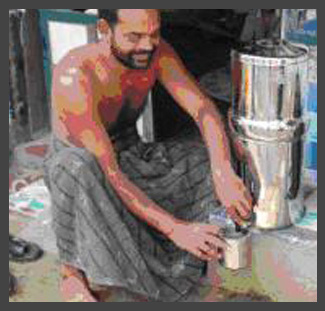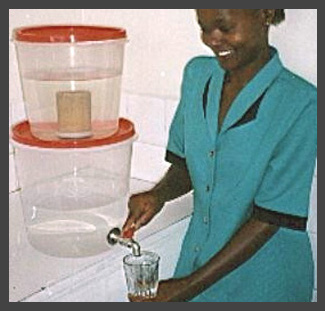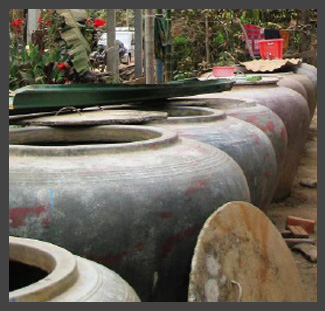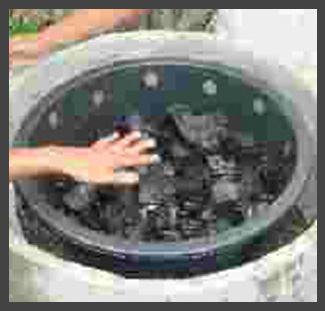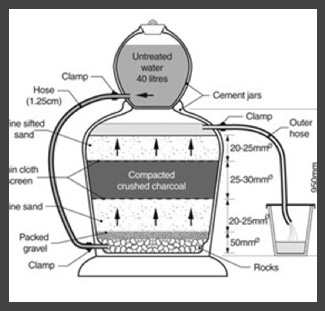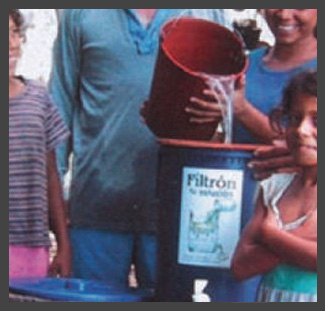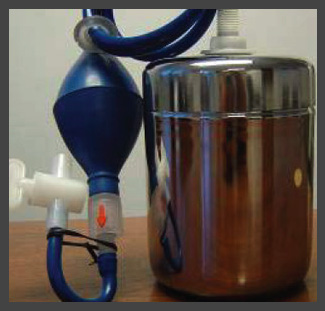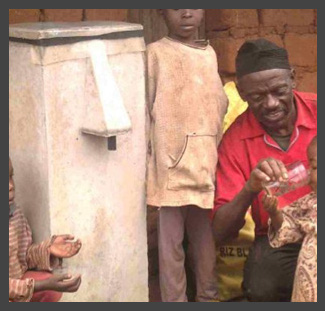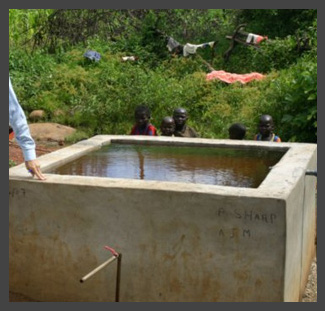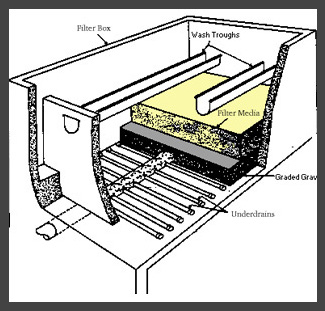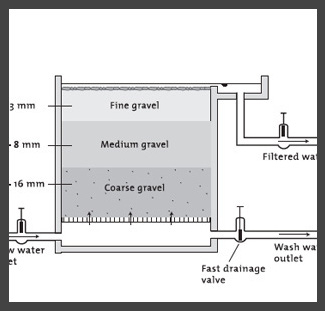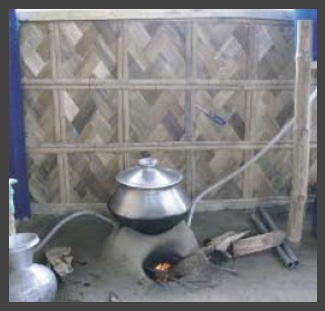Difference between revisions of "HWTS - Filtration"
(→HTWS filtration links) |
|||
| (16 intermediate revisions by one other user not shown) | |||
| Line 1: | Line 1: | ||
| − | [[Image:Pac Institute logo.png|thumb|right|130px|The [http:// | + | {{Language-box|english_link=HWTS - Filtration |french_link=HWTS - Filtration (français) |spanish_link=Coming soon|hindi_link=Coming soon|malayalam_link=Coming soon|tamil_link=Coming soon | korean_link=Coming soon | chinese_link=https://akvopedia.org/wiki/家庭水处理和安全存储——过滤 | indonesian_link=Coming soon | japanese_link=Coming soon}} |
| + | |||
| + | [[Image:Pac Institute logo.png|thumb|right|130px|The [http://pacinst.org/issues/water-and-poverty/community-choices-system/ Community Choices] tool from [http://www.pacinst.org/ The Pacific Institute].]] | ||
<small-title /> | <small-title /> | ||
Household water treatment and safe storage (HWTS) has emerged as a viable solution for small and large populations, especially in rural areas. HWTS interventions can lead to dramatic improvements in drinking water quality and reductions in diarrhoeal disease, making an immediate difference to the lives of those who rely on water from polluted rivers, lakes and, in some cases, unsafe wells or piped water supplies. | Household water treatment and safe storage (HWTS) has emerged as a viable solution for small and large populations, especially in rural areas. HWTS interventions can lead to dramatic improvements in drinking water quality and reductions in diarrhoeal disease, making an immediate difference to the lives of those who rely on water from polluted rivers, lakes and, in some cases, unsafe wells or piped water supplies. | ||
| − | To decide which household water technology is most appropriate for your needs, financials, and preferences, try using the [http:// | + | To decide which household water technology is most appropriate for your needs, financials, and preferences, try using the [http://pacinst.org/issues/water-and-poverty/community-choices-system/ Community Choices] tool by [http://www.pacinst.org/ The Pacific Institute]. It walks you through a brief survey to consider variables for the right HWTS treatment in '''Ghana, Burkina Faso, Australia and the US'''. |
<br> | <br> | ||
| Line 9: | Line 11: | ||
<br> | <br> | ||
<br> | <br> | ||
| − | <div style=" background-color: #efefef; text-align: center; -moz-border-radius: 2px; -webkit-border-radius: 2px; border: | + | <div style=" background-color: #efefef; text-align: center; -moz-border-radius: 2px; -webkit-border-radius: 2px; border: 5px solid #dedede; padding: 5px;" > |
| − | {|cellpadding=" | + | {|cellpadding="5" cellspacing="0" width="100%" |
|- | |- | ||
|colspan="5" style="background-color:#efefef;"| | |colspan="5" style="background-color:#efefef;"| | ||
|- | |- | ||
| − | + | |style="background:#efefef;"|[[Image:straining with cloth small.jpg|center|100px|link=Straining (fabric or micro)]] | |
| − | + | |style="background:#efefef;"|[[Image:CPF1 small.jpg|center|100px|link=Ceramic pot filter]] | |
| − | + | |style="background:#efefef;"|[[Image:filter in use small.jpg|center|100px|link=Ceramic candle filter]] | |
| − | + | |style="background:#efefef;"|[[Image:kisii filter bucket small.jpg|center|100px|link=Kisii filter bucket]] | |
| − | + | |style="background:#efefef;"|[[Image:arsenic removal small.jpg|center|100px|link=Arsenic filter]] | |
| − | |||
| − | |style="background:#efefef;"|[[Image:straining with cloth small.jpg|center| | ||
| − | |style="background:#efefef;"|[[Image:CPF1 small.jpg|center| | ||
| − | |style="background:#efefef;"|[[Image:filter in use small.jpg|center| | ||
| − | |style="background:#efefef;"|[[Image:kisii filter bucket small.jpg|center| | ||
| − | |style="background:#efefef;"|[[Image:arsenic removal small.jpg|center| | ||
|- | |- | ||
|style="background:#efefef;"|<div class="center" style="width:auto; margin-left:auto; margin-right:auto;">[[Straining (fabric or micro)]]</div> | |style="background:#efefef;"|<div class="center" style="width:auto; margin-left:auto; margin-right:auto;">[[Straining (fabric or micro)]]</div> | ||
| Line 38: | Line 34: | ||
|colspan="5" style="background-color:#efefef;"| | |colspan="5" style="background-color:#efefef;"| | ||
|- | |- | ||
| − | + | |style="background:#efefef;"|[[Image:iron filter small.jpg|center|100px|link=Iron filter]] | |
| − | + | |style="background:#efefef;"|[[Image:charcoal filter small.jpg|center|100px|link=Charcoal filter / Activated carbon]] | |
| − | + | |style="background:#efefef;"|[[Image:CSP filter small.jpg|center|100px|link=Ceramic Silver Pot (CSP) filter]] | |
| − | + | |style="background:#efefef;"|[[Image:siphon2 small.jpg|center|100px|link=Siphon filter]] | |
| − | + | |style="background:#efefef;"|[[Image:concrete biosand filter small.jpg|center|100px|link=Concrete Biosand Filter]] | |
| − | |||
| − | |style="background:#efefef;"|[[Image:iron filter small.jpg|center| | ||
| − | |style="background:#efefef;"|[[Image:charcoal filter small.jpg|center| | ||
| − | |style="background:#efefef;"|[[Image:CSP filter small.jpg|center| | ||
| − | |style="background:#efefef;"|[[Image:siphon2 small.jpg|center| | ||
| − | |style="background:#efefef;"|[[Image:concrete biosand filter small.jpg|center| | ||
|- | |- | ||
|style="background:#efefef;"|<div class="center" style="width:auto; margin-left:auto; margin-right:auto;">[[Iron filter]]</div> | |style="background:#efefef;"|<div class="center" style="width:auto; margin-left:auto; margin-right:auto;">[[Iron filter]]</div> | ||
| Line 62: | Line 52: | ||
|colspan="5" style="background-color:#efefef;"| | |colspan="5" style="background-color:#efefef;"| | ||
|- | |- | ||
| − | + | |style="background:#efefef;"|[[Image:slow sand filter small.jpg|center|100px|link=Slow Sand Filter]] | |
| − | + | |style="background:#efefef;"|[[Image:rapid sand filter small.jpg|center|100px|link=Rapid sand / gravity filtration]] | |
| − | + | |style="background:#efefef;"|[[Image:upflow roughing filter small.jpg|center|100px|link=Upflow roughing filter]] | |
| − | + | |style="background:#efefef;"|[[Image:chulli pasteurization small.jpg|center|100px|link=Chulli pasteurization]] | |
| − | |||
| − | |||
| − | |style="background:#efefef;"|[[Image:slow sand filter small.jpg|center| | ||
| − | |style="background:#efefef;"|[[Image:rapid sand filter small.jpg|center| | ||
| − | |style="background:#efefef;"|[[Image:upflow roughing filter small.jpg|center| | ||
| − | |style="background:#efefef;"|[[Image:chulli pasteurization small.jpg|center| | ||
|style="background:#efefef;"| | |style="background:#efefef;"| | ||
|- | |- | ||
| Line 88: | Line 72: | ||
===Field experiences=== | ===Field experiences=== | ||
The projects below may utilize household filtration systems. | The projects below may utilize household filtration systems. | ||
| − | + | <br> | |
| − | {| style="width: | + | {|style="border: 2px solid #e0e0e0; width: 60%; text-align: justify; background-color: #e9f5fd;" cellpadding="2" |
| − | |[[Image:rsr 340.jpg|thumb| | + | <!--rsr logo here--> |
| − | | | + | |- style="vertical-align: top" |
| − | + | |[[Image:akvorsr logo_lite.png|center|60px|link=http://akvo.org/products/rsr/]] | |
| + | <!--project blocks here--> | ||
| + | |- style="vertical-align: bottom" | ||
| + | |[[Image:project 340.jpg |thumb|center|140px|<font size="2"><center>[http://rsr.akvo.org//project/340/ RSR Project 340]<br>Water training centre in Malawi</center></font>|link=http://rsr.akvo.org//project/340/ ]] | ||
| + | |[[Image:project 473.jpg |thumb|center|140px|<font size="2"><center>[http://rsr.akvo.org/project/473/ RSR Project 473]<br>Project <br>Water4Tomorrow</center></font>|link=http://rsr.akvo.org/project/473/ ]] | ||
| + | |[[Image:project 840.png |thumb|center|140px|<font size="2"><center>[http://rsr.akvo.org/project/840/ RSR Project 840]<br>Rainwater harvesting in Guinee Bissau 2</center></font>|link=http://rsr.akvo.org/project/840/ ]] | ||
|} | |} | ||
| + | <br> | ||
| − | + | ===HTWS filtration links=== | |
| − | + | * To accelerate health gains to those without reliable access to safe drinking water, WHO established the International Network to Promote HWTS in 2003. The informal network format optimizes flexibility, participation and creativity to support coordinated action. [https://www.who.int/water_sanitation_health/water-quality/small-community-management/scwsm_network/en/ The Network]. | |
| − | + | * [https://www.who.int/water_sanitation_health/publications/wsh0207/en/ Managing water in the home: accelerated health gains from improved water supply.] WHO. | |
| − | |||
| − | |||
| − | + | <br> | |
| − | + | {{#ev:youtube|qYTif9F188E|200|auto|<center><font size="3">The Drinkable Book <br>- Water is Life</font></center>}} | |
| − | |||
Latest revision as of 23:13, 31 December 2019
| |
|
|
|
|
|
|
|
|
Household water treatment and safe storage (HWTS) has emerged as a viable solution for small and large populations, especially in rural areas. HWTS interventions can lead to dramatic improvements in drinking water quality and reductions in diarrhoeal disease, making an immediate difference to the lives of those who rely on water from polluted rivers, lakes and, in some cases, unsafe wells or piped water supplies.
To decide which household water technology is most appropriate for your needs, financials, and preferences, try using the Community Choices tool by The Pacific Institute. It walks you through a brief survey to consider variables for the right HWTS treatment in Ghana, Burkina Faso, Australia and the US.
Field experiences
The projects below may utilize household filtration systems.
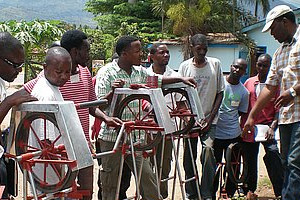 Water training centre in Malawi |
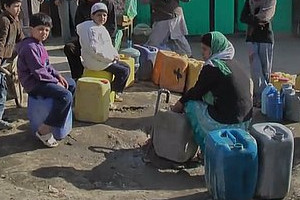 Project Water4Tomorrow |
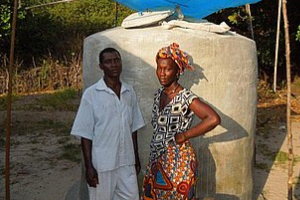 Rainwater harvesting in Guinee Bissau 2 |
HTWS filtration links
- To accelerate health gains to those without reliable access to safe drinking water, WHO established the International Network to Promote HWTS in 2003. The informal network format optimizes flexibility, participation and creativity to support coordinated action. The Network.
- Managing water in the home: accelerated health gains from improved water supply. WHO.
- Water is Life
